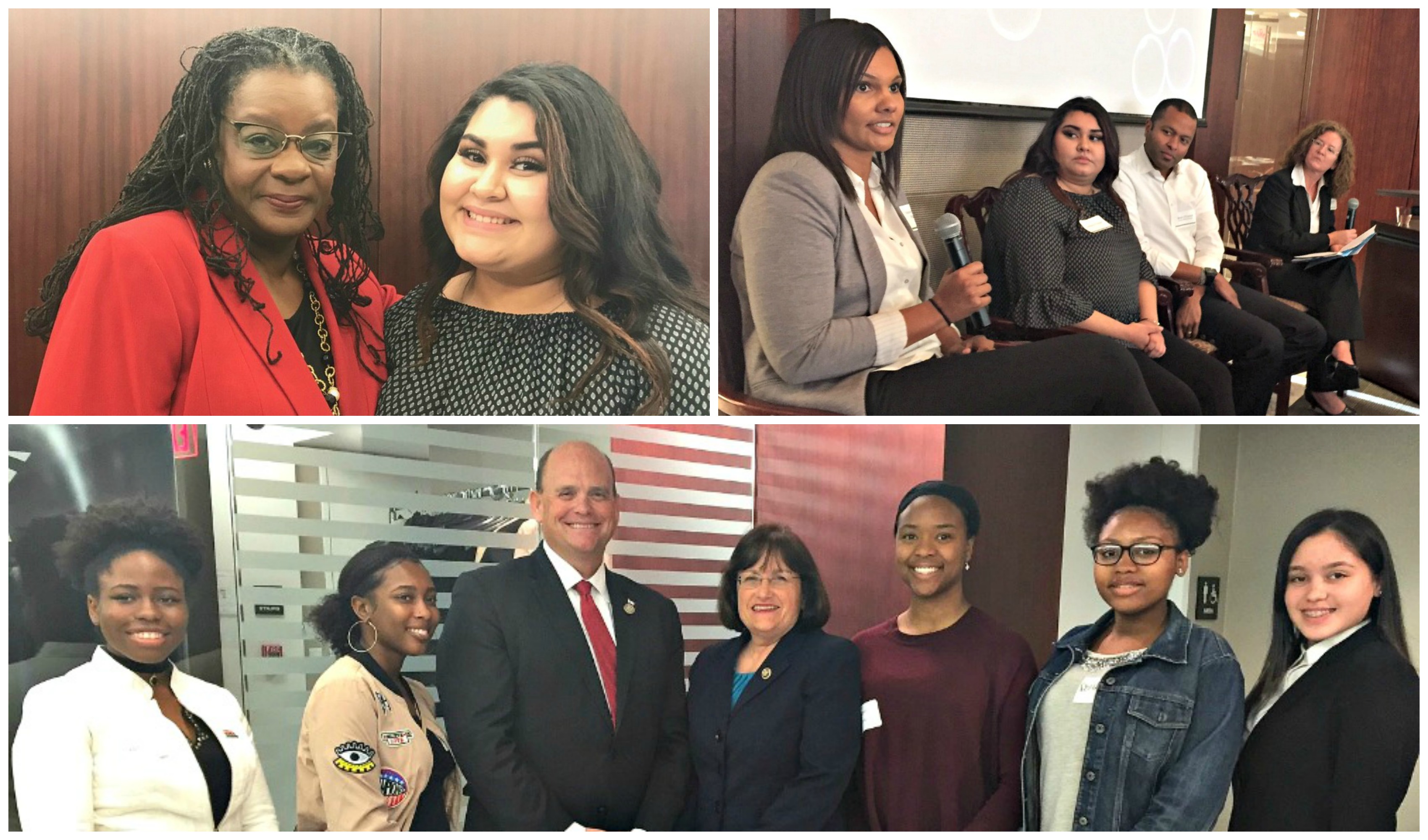How Congress Can Prevent Sexual Violence and Cyberbullying Among K-12 Girls

As part of Sexual Assault Awareness Month, FUTURES co-hosted a Capitol Hill reception and discussion on Wednesday, April 26, 2017 in partnership with Girls Inc., RAINN, SafeBAE, YWCA, the American School Counselor Association, the National Alliance to End Sexual Violence, the American Association of University Women (AAUW), and The National Crittenton Foundation.
The event focused on how Congress can support existing policies to prevent sexual assault and harassment in middle and high schools. It used the recent documentary Audrie & Daisy to spotlight existing public policies and funding that can be used by families, schools, and communities to prevent sexual violence and cyber-sexual harassment against middle school and high school girls.
The panelists included Keasara “Kiki” Williams, Director of Office of Equity and Title IX Coordinator from the San Francisco Unified School District; Brian O’Connor, our Director of Public Education and Campaigns; and Adriana Presas, a 19-year-old survivor of sexual assault in high school, who told her story in public for the first time.
“I knew I had to say something because I didn’t want the same thing that happened to me to happen to anybody else,” Adriana said.
Her powerful testimony echoed the need for more prevention programs in K-12 and the importance of funding being allocated to such programs.
During the event, we also had remarks by U.S. Representative Ann McLane Kuster, U.S. Representative Gwen Moore, Senator Joni Ernst, and Congressman Tom Reed who spoke on the importance of prevention programs that start early and the work that remains to be done if we are to end sexual assault in middle and high schools.
According to Centers for Disease Control and Prevention (CDC), sexual violence is common for girls under the age of 18 with approximately 8% or 10 million girls each year experiencing rape or attempted rape. Four million experienced rape involving drugs or alcohol, as experienced by the girls in the documentary.
Policymakers can help by:
- Preventing any cuts to the Violence Against Women Act funding, which provides protection and funding to programs helping prevent sexual assault and to survivors;
- Starting to fund the new ESSA Title IV, Part A, a program that would give local schools funding to do the necessary prevention work;
- Ensuring the Department of Education continues to enforce Title IX, which requires schools to have policies and personnel in place to create a safe education environment for students, and holds them accountable if they fail to do so; and
- Supporting funding for schools and law enforcement agencies, health programs, rape crisis centers and community-based organizations to provide services to victims and families and support prevention training.
Let us remember that as Congresswoman Gwen Moore reminded us during her remarks: “Our morals are defined by what we fund.”






